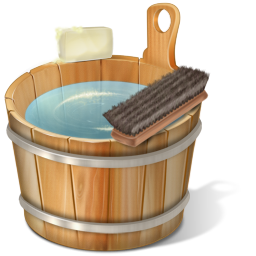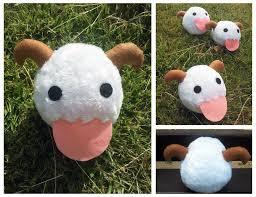Taven Moore's Blog, page 35
September 11, 2013
[Perry] Resonance
Alternative title: Knowing Your Audience
Here’s the question, right?
When you’re writing a story, be it a full-length novel or a piece of flash fiction, who exactly are you writing for?
These thoughts were spurred by a flash fiction contest that I entered with our esteemed Ms. Priest and Brbrbrbree!
If you were interested in reading some of the stories and voting along on which you think were the best reads, the story forums can be found here.
No, I won’t reveal which stories belong to us. It’s a blind vote so it’ll be up to you guys to guess if you decide to check it out.
But anyway, there was a comment on one of the stories that talked about how the story didn’t quite seem directed to the adult reader, but not really directed at the younger readers either.
It made me start thinking about the impact a story has when it hits the intended audience…but more importantly, it made me start thinking about how much of that impact is LOST when it’s someone outside the intended audience that’s reading it.
For another more concrete example, take the recent Simon Pegg movie that hit theaters, The World’s End.
On the surface, the movie is about a group of old friends having a reunion and going out on an epic pub crawl in their hometown when they stumble upon the beginnings of a robot apocalypse kinda thing.
But the movie is actually about a man dealing with a crippling bout of nostalgia, and the desire to make everything ‘go back’ to the way they were.
It’s about an existential crisis, almost, as the main character tries to come to terms with the fact that life has passed him by, that his friends have all moved on , gotten careers, started families, while he’s still sitting there, trying to bring the past back to life.
Now, back to the topic of intended audiences.
This movie resonated with me in a big way.
I have friends who act the way the main character does. Hell, I’ve acted the way the main character does. The movie spoke to me.
But I think about a young kid, maybe about to turn 20, checking out this movie with his friends…and I can’t see that impact happening.
I don’t really see someone who’s never asked themselves, “Jesus, what the fuck am I doing with my life?” really appreciating all this movie has to offer.
So that’s what I’m wondering.
Have you ever sacrificed a piece of what you saw in your head to reach a ‘wider audience’? Where do you take a stand? Where do you draw your line in the sand?
For me, my last incident was fairly recently. I refused to pull the use of the word “fucked” in a story.
I had a pretty solid reasoning going on in my head at the time and, for the most part, I still stand by it.
But after thinking about this stuff, I wonder about that choice.
What about you guys? Any regrets out there?
Related posts:
[Perry] Wherein Not All Things Need To Be Ambitious
[Perry] Using An Unreliable Narrator
[Perry] Grit and Grime
September 9, 2013
Hummingbird Moth
Mom came down to hang out with me over the weekend, and we saw the most incredible thing.
A hummingbird moth.
It’s the size of a hummingbird, but it’s a moth.
SO AMAZING.






Related posts:
Choose-Your-Own-Novel?
September 5, 2013
Horse Ranch Adventures
 Alternately Titled : I Will Never Tan
Alternately Titled : I Will Never Tan
The Interview
My very first job was working as a groom at a horse ranch.
I think I picked the place because it had stone horse-head statues on the gate. I do recall walking up to the front door, knocking, and asking if I could have a job.
I also remember the look of bewilderment on the lady’s face. (Clearly, this is not the normal way in which one applies for a job, but I didn’t know any better at the time).
She asked if I had any experience, and I said no, but I’d read a LOT of books with horses in them. (I don’t recall her reaction to this, but I like to think she had to stifle a surprised bark of laughter)
She asked what I’d do if a horse tied up in a stall panicked and I told her that since I didn’t know what to do, I’d leave him alone and go get someone to help.
Apparently those were either good answers or she thought maybe I’d wuss out after the first day of hard work (I weighed 95 pounds soaking wet, and most of that was ass-length hair). She offered me a criminally low daily wage for working 12 hours on both Saturday and Sunday, and I accepted without blinking.
It wasn’t the money I wanted, you see. It was the horses.
The Job
I hauled myself out to that ranch twice a week for I don’t even know how long and I worked till my feet went from aching to a sharp throb that stabbed from toes to thighs.
I walked a colicky mare for two hours past the time I was supposed to go home. I worked in the blistering Texas heat without any A/C and probably not nearly enough water. I went from smothering barn to baking sun over and over again.
I learned how to groom a horse and clip it, how to lead and soothe and lunge. I learned how to scrub grass stains from walls and braid a horse’s tail so that it could be quickly unbraided and flow for shows. I learned how to dodge a bite and all the right places to scratch an itchy shoulder or neck.
I learned how to tack up and down and how to wash and squeegee and clean dried bugs out of light fixtures. (I also learned how to collect, measure, and portion out semen, but we’re gonna skip right past that one so as not to make anyone squeamish).
I learned how to trick a wily broodmare into being caught and just how damn big spiders can get.
I learned a lot about the sorts of things I will never, ever do to a horse, and that just because someone lives with horses and loves them, that doesn’t mean they’re good people. I learned that nice people can be lazy, and lazy can lead to extra work for other people, angry bosses, dull-coated horses, violent injuries, and even the death of a good horse who panicked in the wrong direction.
The Horses
I remember a mare with a mahogany coat and tidy black socks up to her elbows, and how her cream-and-shadow dappled coat never failed to amaze me. The other grooms always left her to me for lunging, because I was the only one who could make her sweat — she knew just how to casually trot so as to not get any real exercise, and she grew fat and sassy under the care of the other girls. I remember one time she broke loose from the girl leading her and how I walked up to her slow and calm and let her finish her conversation with the mare on the other side of the stall she’d stopped at before I walked her back home.
I remember LoverBoy, the nickname we gave the palamino paint stud who frequented the training barns. I remember how he’d scream and toss his heads to impress the mares, and how he’d lead easy as a peach as long as you gave him enough rope to try his impressing. It never worked on the mares, but I was the only girl who would lead him without a chain wrapped around his nose.
I remember Knickknack and her foal Paddywack, and sneaking out to their pasture to give them extra scritches any time one of the other mares needed to be caught for palpating.
I remember the incredibly, mind-bendingly expensive stud who formed the basis for the farm’s breeding operation, and how he knew he was expensive enough that I wasn’t allowed to reprimand him for nipping. Even so, he wasn’t mean or sour, just bored and mischievous, and a quick-witted groom could handle him with ease.
I remember the oh-so-tall Thoroughbred stallion who used to silently laugh at me as I tried to groom him. The closer I got to his head, the higher he’d lift it. He wasn’t head-shy — he just liked making me grunt as I tried (and failed) to reach high enough to scrub his cheeks.
I remember the bad-tempered gelding who would slip his head out between the bars of his stall, pin his ears back, and bare his teeth at anyone he could see. I’d read stories about horses whose heads were snake-like in their violence, and he was the only horse I’d ever met who showed me what that author had meant. I traded out of doing his stall for an entire row of other stalls, just to keep from having to get near him, and he took a chunk of skin off my knuckle the time I had to blanket him to keep him warm at night.
I remember the tiny shetland pony, bought and forgotten for a spoiled little boy who refused even to tack her up on his own. I remember hauling a bucket of water out to where she’d been staked, and how gratefully she leaned against me as she drank.
I remember the mare and her foal in one of the smaller fields. The mother watched on, but let me say hello and run my hands along the little one’s back and even down his legs without complaint. I remember that forcefully, every time I remember the panic of the yearlings being brought in from the fields they’d spent their entire lives in. I remember that the littles can be worked with in small ways, and that training shouldn’t be screaming and slipping in the mud and end with quiet terror.
I remember pulled pork bbq sandwiches with ranch dressing and illicit visits to the owner’s swimming pool when they were out of town. I remember coming home and thinking I’d gotten a tan (FINALLY) only to have all the color wash off in the shower. No tan at all, but a thick coating of Texas dust instead.
Most of all?
I remember the smell of hay and leather and HORSE. The low whicker, answered by a friend a few stalls over. I remember warm, soft fur (sometimes filling the air until it seems the horse can’t possibly have any fur left to shed). I remember the velvet twitch of a muzzle taking a carrot and the firm muscle under a hug. I remember a whole herd of broodmares caught up in a frivolous desire to run and buck and play, tossing their heads at the three girls sitting on the fence who wouldn’t be catching them, not that day.
That job didn’t pay me well in money, but I am so very glad I swallowed my fear and asked if I could work with the horses, please, though I didn’t have any experience at all. It paid me in HORSE, and that was all I wanted or needed.
You
What was YOUR favorite/best job?
Related posts:
Uncle Snake
Why I Hate Public Restrooms
In Which Writing Is Not Entirely Unlike Horses
September 4, 2013
[Perry] Chapter Division
…In other words, how to saw your book into itty bitty, bite-sized pieces.
Post inspired by Bill, who asked the questions on a certain sauce-filled forum group. I was going to respond to his request for suggestions there but asked myself, “Why respond just there when I can drag out Tami’s soapbox and pontificate to the crickets here, instead?”
Lo and behold, a post was born.
(It’s a girl).
Chapters and why we need em:
Think about eating a bowl of spaghetti.
…You’re not really feeling it, are you? Let me add some details so that we can set the scene here.
Think about…putting together all of the ingredients for spaghetti, right? You get your big pot and you brown up some ground beef. You slice up some mushrooms, throw in two cans of sauce as well as a can of diced tomatoes. Add in some meatballs, some spices and maybe even some broccoli if you’re feeling adventurous.
You let that shit simmer till all of the flavors are all blended together and the smell is wafting through the entire house. You cook up a ton of noodles, enough to feed a freaking village.
You heap noodles onto the plate and you ladle out a steaming portion of that glorious spaghetti sauce.
You sit down at the table, dig in with your fork and start eating…but you can’t bite off a mouthful of noodles. That’s no problem, right? You can just slurp at your noodles until you reach the end and then chew all of that deliciousness altogether.
…Except it doesn’t end. You slurp and slurp but the noodles don’t have an end to them and no matter how hard you try, you can’t cut or bite off the portion in your mouth. You’re forced to just add more and more noodles into your mouth till your cheeks are bulging and your gag reflex is kicking in. A sheen of sweat pops out on your forehead but there’s still no end in sight.
That? That’s how it feels to read a book without chapters.
How much is a good mouthful?
The question we’re asking ourselves now is where to drop in these chapter breaks.
Too much at a time and you’ll give your reader an uncomfortably full feeling. Too little and they’ll get frustrated, lose interest.
You definitely don’t want that.
First thing to take into account is that you don’t want to be perfectly formulaic when it comes to chapter length…but you don’t want to vary in a huge fashion either.
Every mouthful of delicious spaghetti isn’t going to have the exact same weight and heft to it…but it should be in the same ballpark. Don’t be afraid to extend your chapter by 200-300 words when something exciting is happening that just can’t wait…but if you find yourself extending a chapter into or past the 400-500 word range, you may want to go back and take a hard look at how the pacing of your novel is working.
Keep in mind, I have totally been guilty of this. But it takes someone who’s been burned to preach about the dangers of fire, am I right?
In a recent story I’d written involving dragons, the second last segment of the story (the climactic battle) was easily 50%-60% longer than any other segment in the story.
I felt that I didn’t have a choice in the matter due to the format of the story and the limitations…but re-reading it again later made me really feel that sudden extra length.
Whenever possible, try to avoid this.
Keep in mind as well that too short is usually just as bad. It can leave your reader feeling like they’ve just stepped off a moving walkway.
Do not let your reader stumble.
Wafting them from breeze to breeze on spaghetti-fuelled dreams is the name of the game here.
How to end chapters:
The last line of a chapter should either force the reader to turn and start the next chapter immediately, or it should give them a satisfying stopping point.
I’ll provide an example of each of these types of chapter ends and, conveniently, they both rise from the mind of our dear Authoress ;)
This is an example of a chapter ending that just about grabs you by the lapels and forces you to turn that page.
Granted…at the time, there WAS no next page and much teeth gnashing was had by all… >.>”
But all the same? It’s got that sense of immediacy. It’s got a feeling that shit is about to go DOWN and you’d be crazy to miss it. Just turn the page. Turn it. Yeah…you start that next chapter…
This is a good way to end a chapter.
But you run into the problem of having too much of a good thing. You can’t just have nothing but climaxes in your story. Every single chapter can’t end with a page turner.
I know, they’re fantastic and they’re great when done well, but at the same time, if EVERY chapter ended that way, you lose a lot of the impact.
What you WANT is to deliver a couple of quick jabs and follow that up with a haymaker. What you DON’T want is to throw nothing but haymakers all the time.
Doing so will exhaust you as you rack your brain, trying to constantly throw your main characters into the fire. You’ll also exhaust your reader if they’re there along with your characters as they stagger from TERRIFYING CLIMACTIC DILEMMA! to HORRIBLE CATACLYSMIC CATASTROPHE!
Something like this is a good example of a more quiet chapter ending. There’s definitely still a bit of, “so what happens next?” but it’s not as immediate. Which makes it a great place to put the story down for a while and pick it up later when I feel like reading again.
So what constitutes a bite-sized chunk?
The length of each chapter really comes down to the length of the overall piece, as well as what kind of story you’re telling. Some stories are more suited to shorter, more punchy chapters while others benefit more from long, rambling lengths to impart that sense of a lot of shit happening (yes, that’s totally the technical and professional term for it).
For a regular-sized novel, I feel that anywhere from 2500-4000 word chunks comprise nice breaks for chapters.
That sort of length is just enough to get a nice chewy, mouthful of spaghetti, but not enough to feel like the author is trying to choke me with their words.
Just keep in mind that the way you end off each chapter is likely more important than a rote, uniform LENGTH to your chapters.
Making the post a friendly one:
*Steps down off Tami’s soapbox and tucks it away for safekeeping under the table.*
So what kind of chapter lengths do you like better? The short and punchy ones? Or the long, rambly ones?
Do you love the cliffhanger endings? Or do they make you want to go out and strangle authoresses who maybe got you hooked on them but then totally never finished the story and left the fates of a bunch of characters up in the air and you feel like you’ll never know and you totally still want to meet some of the villains that were hinted and teased at and what the hell happens to Remora at the end anyway?
….*cough, I mean…uh…
*Flees
Related posts:
[Perry] First Person Perspective
[Perry] World War Z
[Perry] Perry’s Review of The Unremembered
September 2, 2013
Conversation Challenge
 Challenge time!
Challenge time!
Sometime in the next week (or even the next day) when you have a conversation with someone — listen to them fully.
Don’t spend your time thinking about what YOU want to say next, or what story you want to add. Force yourself to slow down and listen to every word they say.
Reflect on their words. Think about what they’ve said without inserting yourself into it.
Truly listen.
I admit that I’m guilty of listening and planning at the same time. It’s not that I don’t care — I DO care, quite a lot! — it’s just that I’ve been talked over so many times growing up that I feel an almost desperate need to be a part of a conversation.
I think it’s time I slowed down a bit. My friends aren’t adults, irritated at my interruptions. They’re fascinating, incredibly wonderful people, and I’ll bet I get to know them better if I focus on them a little more.
You
What about you? Do you catch yourself spending your attention on your next response instead of listening to the person talking?
Related posts:
The Lost Art Of Listening
Pocket-Calls From Texas
Be Today The Person You Want To Be Tomorrow
August 29, 2013
Adagio Pokemon Tea Sampler Reviews
 Not one but TWO benefactors (whose names shall not be revealed as I am not sure they want me to mention it. Feel free to out yourself in the comments) gave me some Adagio tea certificates after reading my Geeky Fandom Teas post.
Not one but TWO benefactors (whose names shall not be revealed as I am not sure they want me to mention it. Feel free to out yourself in the comments) gave me some Adagio tea certificates after reading my Geeky Fandom Teas post.
With the money, I chose to get a Pokemon Tea Sampler, as well as a few more bags of teas for crafting my OWN tea blends.
Each tin contains rather a LOT of tea. I was able to test each of them multiple times without really making much of a dent in them. The tins themselves are good quality, and the art is exactly as expected. I’ll be re-using the tins for my own blends when I’m done with them. (they’re a bit like Altoids tins).
1 – Bulbasaur
Citron Green and Forest Berries
This was good, but somehow fell short of being awesome. I’m pretty picky on my berry teas and even though the fruits were very mild, they didn’t ring my bell.
Overall: 3 out of 5 stars
4 – Charmander
Cinnamon, Spiced Apple Chai, and Oriental Spice
A lovely chai. The apple didn’t seem to add a lot to it, but I’m able to drink it without sweetener and cream, so it must be adding something. =]
Overall: 3 out of 5 stars
7 – Squirtle
White Blueberry, Cocomint Green, and Spearmint
A lovely bright mint. I don’t taste the blueberry much, but typically spearmint is very gum-like to me, and this doesn’t have that same issue.
Overall: 3 out of 5 stars
25 – Pikachu
Rooibos Lemon Cloud, Dewy Cherry
I didn’t expect to like this one (again with my bias against rooibos) but honestly? It was pretty awesome. The only complaint I have is that much of the loose leaf tea is so tiny that it escapes Hugh’s belly and floats about in my tea.
Overall: 4 out of 5 stars
133 – Eevee
Chocolate Chai, Hazelnut, and Cream
Sweet, sweet, sweet. The scent alone is enough to make you feel like you’ve put on some weight. Less of a spicy chai than usual, but I like that about this. All the flavors blend together very well into a sweet dessert tea that needs no sugar (but doesn’t say no to sugar and cream if it happens to be up for an adventure). Aaaaaalmost my favorite of the dark chai teas, but Umbreon beats it out for that coveted spot. ^_^
Overall: 4 out of 5 stars
134 – Vaporeon
White Cucumber and Spearmint
Another lovely, light mint. I don’t feel that the cucumber adds much flavor to this one.
Overall: 2 out of 5 stars
135 – Jolteon
Peach, Apricot, and Ceylon Sonata
GORGEOUS tea. One of my favorites from this bunch. Nicely fruity while still having a solid black tea base. Many black teas are too bitter for me, but the fruitiness really gives this a lovely sweetness.
Overall: 5 out of 5 stars
196 – Espeon
Hibiscus and Blackberry
I expected to really like this one, but apparently the hibiscus teas I’ve had in the past have been weak, pitiful examples of the flower. The tea was almost overwhelmingly floral. Incredible to smell, very weird to drink. Sadly, my least favorite tea (despite being one of my favorite pokemon).
Overall: 1 out of 5 stars
471 – Glaceon
Snowbud, Peppermint
I’m predisposed to love peppermint, and this was no different. I’m not sure I noticed a lot of difference with the addition of the snowbud, but it was certainly a very yummy tea.
Overall: 4 out of 5 stars
Follow-up
I was going to do a bunch of pokemon doodles to accompany this post, but I thought it’d be more fun if you guys vote on like … 2 or 3 pokemon you’d like to see me draw. They have to be from this list of teas, though! Vote with a comment!
Related posts:
Geeky Fandom Teas
The Return of Upton Tea!
Morality and Pokemon
August 28, 2013
[Perry] More on Villainy
So a while ago, I ran into a wonderful quote from George R R Martin.
It reads as follows:
I still love all the characters. Even some of them who aren’t very loveable. At least the viewpoint characters. When I’m writing in the viewpoint of one of these characters, I’m really inside their skin. So, you trying to see the world through their eyes to understand why they do the things they do. And we all have, even characters who are thought of to be bad guys, who are bad guys, in some objective sense, don’t think of themselves as bad guys.
That’s a comic book kind of thing, where the Red Skull gets up in the morning [and asks] “What evil can I do today?” Real people don’t think that way. We all think we’re heroes, we all think we’re good guys. We have our rationalizations when we do bad things. “Well, I had no choice,” or “It’s the best of several bad alternatives,” or “No it was actually good because God told me so,” or “I had to do it for my family.” We all have rationalizations for why we do shitty things or selfish things or cruel things. So when I’m writing from the viewpoint of one of my characters who has done these things, I try to have that in my head.
This relates to the post about villains I wrote a while ago, and more importantly, it does so in a manner more concisely than I managed.
When writing or crafting characters, it’s important to remember that the villains almost never think of themselves in that way. The ones that do tend to come off as caricatures and kind of cartoony.
Characters like Cobra Commander, or Darken Rahl from the Sword of Truth, or hell, even frigging Jafar. These villains are hard to take seriously and hard to empathize with because THEY KNOW that there’s no real reason behind what they’re doing. They’re doing it for plot, not because they actually want to.
And as an audience? As a reader? We can tell these things. Especially if you contrast them against villains who actually have motivations and don’t necessarily think themselves the bad guys. We’re talking villains like the Lord Ruler from Mistborn, the Red Hood from Batman, or John Marcone from Dresden files.
Villains who have their own driving motivations and (more importantly) their own set of rationalizations for WHY they’re doing what they do are much stronger than those who do not.
The important takeaway from the Martin quote above is that most of the characters who are commonly considered to be villains DON’T wake up in the morning and ask themselves what evil they can accomplish that day.
They don’t do this because real people don’t do this (generally). It’s important that your own villains reflect that. They need a logical motivation for the things they’re doing. And the worse their goals? World domination or bringing about the apocalypse, the BIGGER and more powerful the motivation needs to be in order to make that seem remotely believable.
Think about your villains…your favorite ones. The ones that stay with you, long after you put down the book or turn off the movie.
What factors do they have in common?
Do they have motivations? Or are they just evil for the sake of being evil?
Related posts:
[Perry] Creating a Strong Villain
Your Story May Not Be Ready
[Perry] Using An Unreliable Narrator
August 26, 2013
5 Ways You Are Making Your Blog An Unfriendly Place
 Nothing here is new, but I can’t find the post I remember reading a lot of these from, so I’ll start afresh.
Nothing here is new, but I can’t find the post I remember reading a lot of these from, so I’ll start afresh.
My definition of “Friendly” may be different than yours, but there are a few of YOU (reading audience) who do some of these things with your blogs and it drives me bonkers.
1. It’s Hard To Comment
I cannot stress this enough. Commenting should be as easy as you can make it. Remember that post I put up about Your App Makes Me Fat? Do not waste my time with a ton of little questions.
For the record, Blogger is the worst I’ve ever seen about requiring me to make decisions and jump through hoops in order to comment.
When I come across a blogger blog, I have to do the following process:
Read the Post (typically this is fun for me, but it’s worth noting as a step)
Decide to Comment (I try not to lurk too much? But there does have to be a REASON I want to say something. Sometimes on friend posts, it’s just a “woot! You go!” which I know from personal experience is vital to making bloggers feel like they’re actually reaching people with their words.)
Write the Comment. Note that by the time I’m done with this, I already feel (as a user) that I am done commenting.
Choose from an unfamiliar dropdown which WAY I want to comment. This always requires effort on my part, and I’m typically annoyed by the time I’ve chosen one. Why? Probably because I’ve been burned by this dropdown before.
The page flashes and I am invited to fill in my name and url, which requires the use of both mouse and keyboard, and changes the UI from what I was just seeing to something else. It requires re-orientation and it further irritates me. I just want to say “woot! You go!” — and suddenly it’s taking me a lot more effort than I’d like.
I submit the information, and I’m treated to the blog page again. I ALWAYS think that my comment has submitted at this point, and I almost always close the browser. But no, the comment is still in the textbox.
I hit the Submit button. The page flashes, and I assume once again that it’s fine. Only, wait, no, the textbox is still there. There is a weird red dot on my screen.
I hit Submit again. The page flashes and now I am treated to a recaptcha, which I’m asked to prove that I’m not a robot.
IF I care enough to keep going, maybe I do the recptcha. Maybe it’s a freaking blurry google maps picture of someone’s address and I feel creepy even helping turn that into text, and maybe I get it wrong, but most of the time? I have VASTLY over-used whatever brainpower I wanted to use in order to tell you “Woot! You go!” and I just close the window in disgust
Seriously. Most of the time, I don’t even bother with Blogger. You, as a blogger, can go into the settings and make these hoops a lot smaller, so it’s easier for me to comment, but you’ve lost 99% of your idle commenting audience with that nonsense. Nobody has time for that. You might as well hold up a “KEEP OUT” sign and turn off comments altogether.
Best commenting? Facebook and G+. Because I’m already logged in to their system, I just type and hit enter and I’m DONE. They even have a +1 or LIKE button I can hit for the super quick feedback.
My blog’s somewhere in the middle, but since I don’t require anyone have an account to get in, I at least want a little info about you so that I can try to weed out spam. I’m not 100% successful, but I’d rather have the odd spam comment get through than to make commenting an unfriendly place for my readers.
2. You Don’t Police Your Comments
If I look at your comments and I see advertisements and obvious spam? I assume you’re not reading your comments. And if you’re not reading them, why would I waste my time leaving them?
3. You Don’t Reply To Comments
This one applies mostly to smaller blogs. Egotistical Priest, for example? Was so big I couldn’t possibly reply to all of them, though I READ all of them and commented when I could.
In my mind? The comments section is a discussion. Even if the comment that was left was a “Woot! You go!” I try to reply with a little heart or thank you. Why? Because they took the time to comment and I want them to KNOW I appreciated it.
4. You Don’t Invite Comments
Say you wrote this AWESOME blog post. It was witty, insightful, clever, and made your readers think about their lives and re-examine their headspace.
Many times, there’s not a lot to say to that. There’s no obvious “oh, here is how that affected me” comment. So you get silence instead.
ASK a question. Did you tell a story? Ask your readers to reply with THEIR favorite stories! Rant about traffic? Ask your readers THEIR traffic woes! I try to make my blog a conversation rather than just a soap box. I don’t always do a great job of that, but I try to trail off with a sincere invitation for my readers to reply.
5. You Are Actually Trying To Make Your Blog Unfriendly
This … probably? Doesn’t apply to you? But if you and your loyal readers gang up on everyone who disagrees with you, or if you openly insult your readers on a regular basis, or offend them, or tell them how NOT to reply?
Well, you’re making your blog a pretty unfriendly place. Which isn’t to say it won’t be a POPULAR place. Humanity loves a good roast. I’m guilty of following these blogs myself, but even as I read them, I found myself commenting infrequently at best, and constantly hoping I wouldn’t end up on the wrong end of that rapier wit.
I’ve stopped following those blogs these days because I value my time more than that, but I know they’re out there. Lurking.
You
Your turn! What things TOTALLY TURN YOU AWAY from a prospective blog? What are your peeves and dislikes?
Related posts:
How to Encourage Comments
Comments – An Analogy
Blogs As Conversations
August 22, 2013
The Magical Writing Closet
Writing Closet
As many of you know, my writing space at home is the closet in the guest bedroom. It’s small and cozy and I love it (and I am not one whit claustrophobic).
Perry
As many of you ALSO know, Perry came to visit recently. Of his stated excitement, getting to see the mystical, mythical, magical writing closet was high on the list.
The Problem
The problem with this was that my writing closet? Was not very magical at all. In fact, it was quite clinical.
This simply would not do. I couldn’t present a hopeful Perry with a boring writing closet! His dreams and hopes would be crushed!
The Solution
So I paid a visit to Party City and upgraded the writing space with :
A string of paper lantern lights
Paper lanterns (no lights)
Giant paper fuzzy decorations hanging from the ceiling (SO MUCH WORK to get those poofed out. Worth it? Yes. But only barely.
Art supplies, treasure chests, steampunk hats and pocketwatches
The Sword of Omens
colorful gift bags
And last (but not least!) an entire package of star balloons to tumble out of the room as he opened the door
Before
Yoga ball chair is the ONLY spot of color. (Those headphones above? AMAZING.) Most boring room. Ever. SHEETS! There were SHEETS being stored in the magical writing closet. Sheets are not magical. They are serviceable at best.



After


Improvement, Much?
Not only was this a happier writing room for Perry to find, I now have an awesome writing closet.
Win, squared.
Related posts:
Habits – Writing Space
Blogger STD: My First Story
Letter Writing
August 21, 2013
[Perry] Quibbles
Welcome to A Trek Through the Literary Wilderness!
I’m your host, intrepid hunter and dashing gentleman, Perry!
…Why aren’t you applauding?
On today’s episode, we’ll be talking about an elusive, plentiful creature, the Quibble.
This is a quibble:
Quibbles are small, furry creatures with two short, slightly curled horns that they use to butt at words. They are a near-sighted creature, covered all around in white fur, adorable little stubby legs and a big, lollygagging tongue that they use to lick up punctuation.
Here is a rare shot of a quibble caught in action, in its natural habitat:
Please keep a close eye on that lolling tongue and the reckless and aimless circling movement as this is the key factor to what makes quibbles the annoying (yet completely adorable) nuisances that they are.
Finding Quibbles
Despite their somewhat elusive nature, quibbles have a very short breeding period so where you find one quibble, be prepared to find SEVERAL quibbles. The extra quibbles might be out of sight but rest assured, 9/10 times, they ARE there, and it’s on you to track the little buggers down.
It’s important to note that quibbles don’t mean to get caught up amongst the words of your document. They might seem a little malicious, but they’re really not.
You can track down quibbles by paying close attention to the flow of your document. Sometimes, when you’re reading and the rhythm of the sentence trips you up, you might find a quibble there. If something about a word you used keeps throwing you off, even though it’s grammatically sound, there might be a quibble stuck there as well.
Quibbles also like to misplace punctuation. They enjoy the taste of periods and commas and they’ll lick it up with their wide, flat tongues and scamper off with them, dropping them off in other places of the sentence.
You might want to be angry at the little buggers, and nobody would blame you for it.
But?
Look at these retarded little bastards:
Can you really stay mad at that happy face?
You’ll come across them in your document. Their white fur will have gotten caught on the brambles and burrs of your sentences. They’ll have gotten stuck on certain, specific words, even. When you find them, though, they’ll roll their eyes up to look at you, tongue lolling as they pant with happiness to see you.
If those suckers had tails, they’d be wagging them.
You might even find them in an exhausted heap, surrounded by punctuation that they’ve pilfered from here or there and misplaced.
It’s important to try not to be angry.
Quibbles actually feed off of negative energy and they tend to split off into multiple copies of themselves, through a process of cell mitosis, and propagate even further depending on how frustrated you are when you attempt to get rid of them.
Chasing Away Quibbles
Be calm.
There are easy ways to shoo quibbles away from your documents.
1) Quibbles are afraid of loud noises.
While quibbles can hide and camouflage easily among the words and punctuation marks of your document, you can easily tell where they might be hiding by reading aloud. When you read by a segment where a quibble might be hiding, keep an eye out for the telltale shiver and the flash of white fur to reveal their existence.
2) Travel with a friend.
Quibbles are adept at slipping by the notice of just one person. They’re small and squibbly and can easily hide within sentences and areas that you think you’ve checked.
Travel with a trusted companion and you will find more of the little buggers than you would have imagined possible. Oftentimes, the extra perspective that differs from your own is just the thing that will keep these things from remaining hidden in your document.
3) Resign yourself to the fact that you won’t catch them all.
Quibbles are a little bit insidious. No matter how many you find and chase out of your document, be sure that you will NOT have gotten them all. Given the rate at which they split and multiply, it’s flat out impossible. There will always be quibbles to chase away.
That being said? It’s important that you understand when it’s good enough.
You’ll never get them all. There will always be an aspect of your work that you could improve or tweak to make a little better. It’s just that, at a certain point, you start feeling the diminishing returns.
Every quibble you chase away makes chasing away the next quibble just a tiny bit less impactful. At a certain point, you really have to ask yourself whether it’s worth slogging down that country mile in order to chase down one solitary quibble that you see on the other end.
Learn to let go.
At a certain point, the quibbles are small enough that you should be able to let your document go without regret.
Learn to embrace that moment and you’ll be happier and stronger for it.
That just about wraps up this episode of A Trek Through the Literary Wilderness!
Stay tuned next week where I, your intrepid host, will brave the wilds of the Blog-engeti to track down the elusive and utterly dangerous Tamikins.
…I’m going to poke her with a stick. >.>”
Related posts:
[Perry] Choose Fanfiction – Beginnings
[Perry] Not Everything Needs to Make Sense
[Perry] Write What You Know
Taven Moore's Blog
- Taven Moore's profile
- 5 followers



